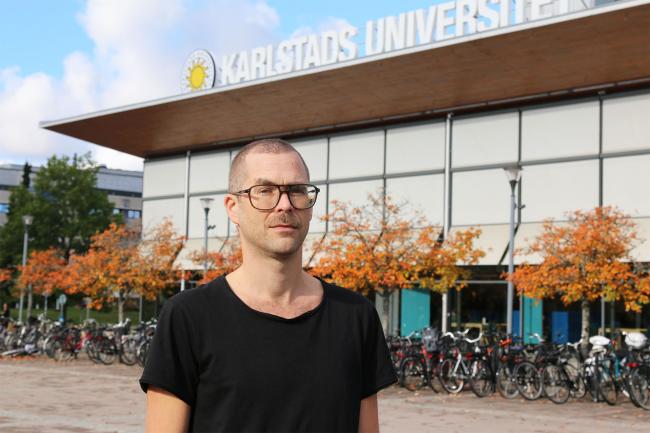Meet Markus Lundström – new professor of sociology with a focus on the unseen
2025-10-15– I want to shed light on the unseen – and the gaze that fails to see, says Markus Lundström, who conducts research on racism, nationalism and political action.
He is looking forward to contributing his expertise in historical sociology at Karlstad University, and dreams about creating an interdisciplinary forum for critical time studies.
Before coming to Karlstad University, Markus Lundström held a position at Mid Sweden University. His academic career started with studies in global development and international relations.
What attracted you to Karlstad University?
– The university offers an exciting and dynamic research environment with great openness to interdisciplinary approaches to societal issues and challenges.
During his PhD studies in economic history, he conducted fieldwork in Brazil to investigate collective memories among farmer workers and smallholders organised within the Landless Workers’ Movement.
– Through my field studies, I discovered how different understandings and experiences of time can function as a political tool, says Markus Lundström. Since then, I have continued to study various aspects of power in relation to time and temporality – both how prefigurative politics seeks to create the future in the present and how the past lives on through racist stereotypes. In recent years, my research has primarily focused on nationalism and racism in Sweden.
Three projects – three perspectives on power
Markus Lundström is currently involved in three different research projects. One is about the birth of Swedish radical nationalism. Another project investigates contemporary everyday racism in Swedish upper secondary schools. However, his main commitment lies in the historical-sociological project Frikyrkan och förintelsen (The Free Church and the Holocaust), where he and a colleague are examining the Swedish Pentecostal Movement’s relationship to Christian Zionism and antisemitism during the 20th century.
How do you want your research to make a difference?
– As a researcher, I hope to shed light on the unseen and what is made invisible – but also the gaze that fails to see. Everyday racism in Swedish schools is an example of a mechanism that creates exclusion and stigmatisation, and which is invisible to some, but clearly present to others. Another example is the collective creation of a historical narrative – creating and using a story about one’s own group, movement or nation. It’s a social practice that hides the undesirable, while at the same time directing focus to what is considered desirable. As such, the idea of the past and the vision for the future can be seen as a political action.
What are you mostly looking forward to in your new role?
– I’m hoping to contribute with my experience of historical-sociological research, where I combine archival studies with ethnographic data collection and text analysis. And my dream is also to develop an interdisciplinary forum for critical time studies that can attract researchers from different faculties, disciplines and knowledge traditions to explore the mystery of time together.


